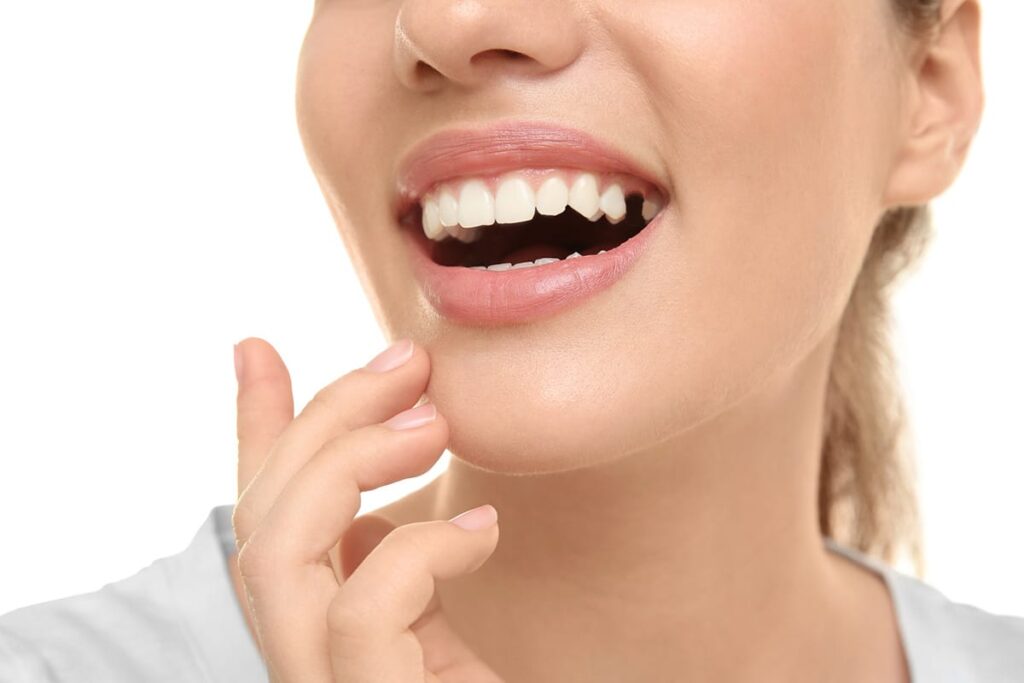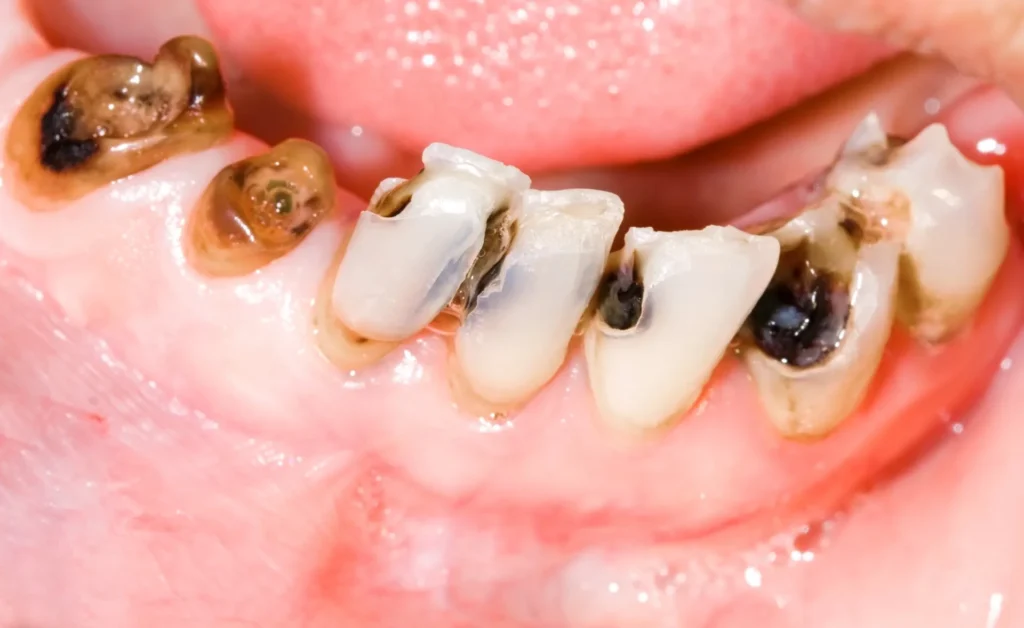
The Importance Of ‘Dental Hygiene Month’ Why You Should Make It A Priority
It’s no secret that ‘dental hygiene’ is important, but sometimes it can be hard to make it a priority. After all, so many other things clamoring for our attention – from work and family obligations to daily tasks and social commitments. But the fact is, if we don’t take care of our teeth, we could be setting ourselves up for bigger problems down the road. Dental hygiene isn’t just about having pretty teeth or avoiding cavities – it’s about preserving our overall health. So why not make dental hygiene a priority in your life?
Here are some reasons why it’s worth your time and effort.
Preventing Cavities
Practicing proper dental hygiene is important to keep your teeth and gums healthy. This will help prevent cavities, which can be a serious health issue. Cavities are caused by the buildup of plaque in the mouth. This plaque has acidic and sugary ingredients that feed the bacteria that cause tooth decay.
Avoid junk foods
To prevent plaque buildup, you should avoid sugary and starchy foods and instead drink water. Drinking water regularly will replenish the saliva in your mouth, which has cavity-fighting properties.

Flossing
Flossing is another important part of good oral hygiene. It can help prevent cavities because it can clean the entire tooth. Ask your dentist for suggestions if you don’t know how to floss. You can also switch your regular toothbrush to a new one every three to four months. Flossing after meals will keep your teeth clean and prevent cavities. Brushing regularly will help keep cavities at bay.
Brushing teeth
Brushing your teeth twice a day is essential in preventing cavities. This can help remove plaque, which is the cause of cavities. Flossing should be done on both sides of each tooth, including the back molars. It is also important to use fluoridated toothpaste formulated to dissolve plaque.
Children should also be encouraged to brush their teeth and gums twice daily. They should also brush after taking sweetened liquid medicines.
Preventing gum disease
Gum disease is caused by bacteria that can destroy your teeth. Although it may appear in a few weeks or months, early diagnosis and treatment are essential to halt its progression. In severe cases, gum disease can damage the bones and tissues supporting teeth. This may result in the need for a tooth extraction.
Preventing gum disease is a key part of good dental health. People who brush their teeth regularly and use fluoride-based toothpaste maintain a healthy smile and are less likely to develop gum disease.
- Brushing twice daily is essential, as it removes plaque and food particles from your teeth.
- Besides brushing, it’s important to floss daily to remove plaque and tartar. Floss holders make it easier to slip floss between your teeth.
- Using a mouth rinse can also help reduce plaque by as much as 20 percent.
- It’s also important to consume a diet rich in the nutrients that prevent gum disease. Also, you should eat plenty of fruits and vegetables rich in vitamin C.
- It’s also important to avoid smoking and other harmful substances, including smokeless tobacco. These products cause localized gum damage and may also cause oral cancer. Long-term use of alcohol and certain types of illegal drugs can also cause damage to your teeth and gums.
- It’s also important to limit your exposure to psychological stress because it can cause the production of inflammatory hormones in your body.
As with any disease, there’s no way to prevent gum disease completely. However, it’s important to recognize the symptoms, including red, swollen, bleeding, and painful gums. Early detection of gum disease will make treatment more successful and less painful.
Preventing tooth loss
While there are many different causes of tooth loss, the primary cause is poor oral hygiene. This results in serious gum disease and tooth decay. Preventative dentistry focuses on maintaining good oral hygiene to reduce your risk of tooth loss. Good oral hygiene includes brushing your teeth at least twice daily and flossing regularly.

Regular dental checkups can also help prevent tooth loss. These visits should be scheduled at least twice a year. An examination is essential to dental hygiene and can reveal hidden dental problems. Early intervention is crucial in preventing tooth loss because it allows dentists to detect dental problems while they are still minor. Waiting too long can result in costly restorative procedures.
Several studies have examined the association between dental hygiene instructions and tooth loss. One of these studies found that the more time dental hygienists spend giving oral health instructions to patients, the lower the risk of tooth loss. Additionally, there is a strong association between the number of dental hygienists and the amount of time they spend instructing patients about oral health.
While more adults are keeping their teeth, there are still many people who don’t have access to proper dental care. Approximately 35% of non-Hispanic Black adults and a third of Hispanic adults report that they have an unmet dental need. Furthermore, people undergoing chemotherapy are at an increased risk of developing oral health problems such as painful mouth ulcers, poor taste, and dry mouth. To protect their teeth, they should use fluoridated mouthwash.
Poor dental hygiene symptoms
Bad Breath
Bad breath is one of poor dental hygiene’s most common and noticeable symptoms. When you don’t brush and floss regularly, food particles and bacteria can build up in your mouth, causing your breath to become stale and smelly.

Yellow or Stained Teeth due to bad dental hygiene
Another symptom of poor dental hygiene is yellow or stained teeth. This is because when plaque and tartar are allowed to build up on the teeth, they can cause the teeth to become discolored. If you notice that your teeth are starting to look yellow or stained, it may be time to see a dentist or hygienist for a professional cleaning.
Gum Disease
Gum disease is another common symptom of poor dental hygiene. Gum disease occurs when plaque and tartar are allowed to build up on the teeth and gums, causing the gums to become inflamed and irritated. If you notice that your gums are bleeding or swollen, it may be a sign of gum disease, and you should see a dentist as soon as possible.
Tooth Decay
Tooth decay is another common symptom of poor dental hygiene. Tooth decay occurs when plaque and tartar are allowed to build up on the teeth, causing the enamel to break down. If you notice cavities or other signs of tooth decay, you must see a dentist as soon as possible to avoid further damage to your teeth.

Sensitivity to Hot or Cold Foods
If you notice that your teeth are sensitive to hot or cold foods, it may be a sign of poor dental hygiene. This can cause the enamel to break down, making the teeth more sensitive to temperature changes. If you have sensitive teeth, it is important to see a dentist so that they can determine the best way to treat the problem.
Jaw Pain
Jaw pain is another common symptom of poor dental hygiene. This is because when plaque and tartar are allowed to build up on the teeth and gums, they can cause the muscles and joints in the jaw to become inflamed and irritated. If you notice that you are experiencing jaw pain, it is important to see a dentist or doctor so that they can determine the cause of the pain and provide treatment if necessary.
Headaches
Headaches are another common symptom of poor dental hygiene. This is because plaque and tartar cause inflammation in the muscles and joints in the head, leading to headaches.

The link between oral health and other health conditions
Studies have shown that poor oral health is associated with chronic diseases such as diabetes and heart disease. This is because the bacteria that cause periodontitis travel through the bloodstream and affect the heart. Eventually, the bacteria cause plaque buildup called atherosclerosis, which can block blood flow and cause heart attacks. Furthermore, damage to blood vessels can cause strokes and hypertension, which can affect the heart.
Public health interventions can help reduce the incidence of oral diseases and improve overall health. Research on the link between oral health and other health conditions is growing. This research will help us develop new treatments for these conditions and better understand how to prevent them from affecting us. Studies have shown that gum disease and diabetes affect the body’s ability to fight infections. In addition, certain health conditions can also affect the mouth, including eating disorders, cancers, and immune system disorders.
Oral health is a vital component of overall health. Poor oral care is directly related to chronic diseases like diabetes, heart disease, and pregnancy complications. In addition to this, it can also have a negative impact on a person’s self-confidence. Poor oral hygiene can also be a symptom of mood disorders like depression. It can also lead to tooth erosion or cavities. Moreover, people with certain illnesses, such as Alzheimer’s and dementia, may forget to perform proper oral hygiene, resulting in poor overall health.
Why must we Prioritize the daily care of your teeth?
Good dental hygiene is essential for maintaining healthy teeth and gums. It’s also important for overall health and well-being. Poor oral hygiene can lead to a buildup of plaque, which can harden and form tartar. This can cause gum disease, tooth decay, and other serious health problems. That’s why brushing and flossing daily and seeing your dentist regularly for professional cleanings are so important. A good dental hygiene routine at home, combined with regular visits to the dentist, can help you avoid these problems and keep your smile healthy and bright.
What will happen if you neglect the oral hygiene of an unconscious patient?
If you neglect the oral hygiene of an unconscious patient, they may be at risk for developing dental caries (tooth decay) or periodontal disease (gum disease). Both of these conditions can lead to pain and tooth loss. Poor oral hygiene can also lead to bad breath and an increased risk of infection. Therefore, it is important to brush and floss the teeth of unconscious patients regularly, as well as provide them with oral care products such as fluoride toothpaste and mouthwash.
Good oral hygiene is important for more than just cavity prevention and fresh breath—it’s essential for overall good health! Brush at least twice a day, floss at least once a day eats a healthy diet, and see your dentist regularly for professional cleanings and checkups. Your mouth will thank you!
Leave a reply